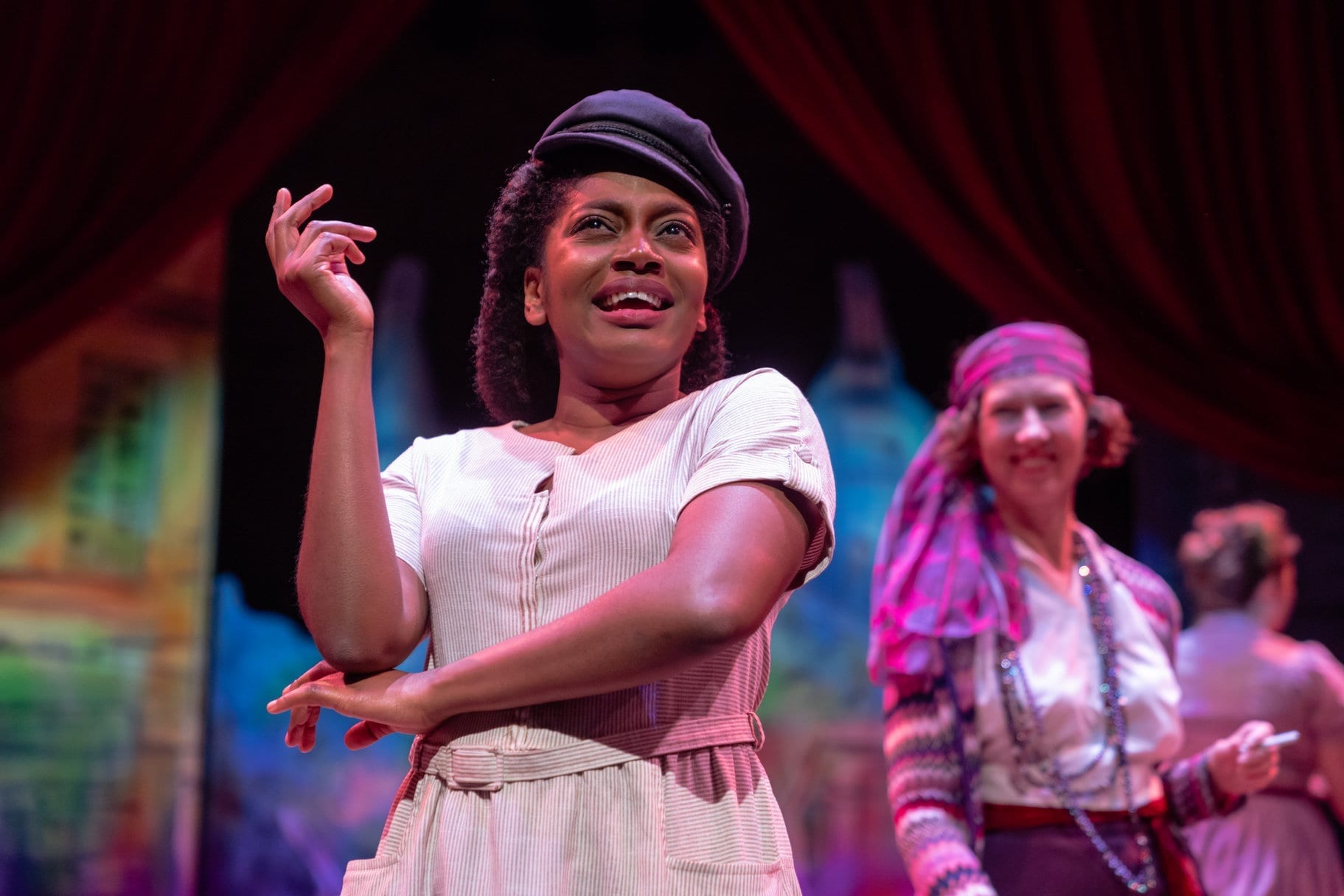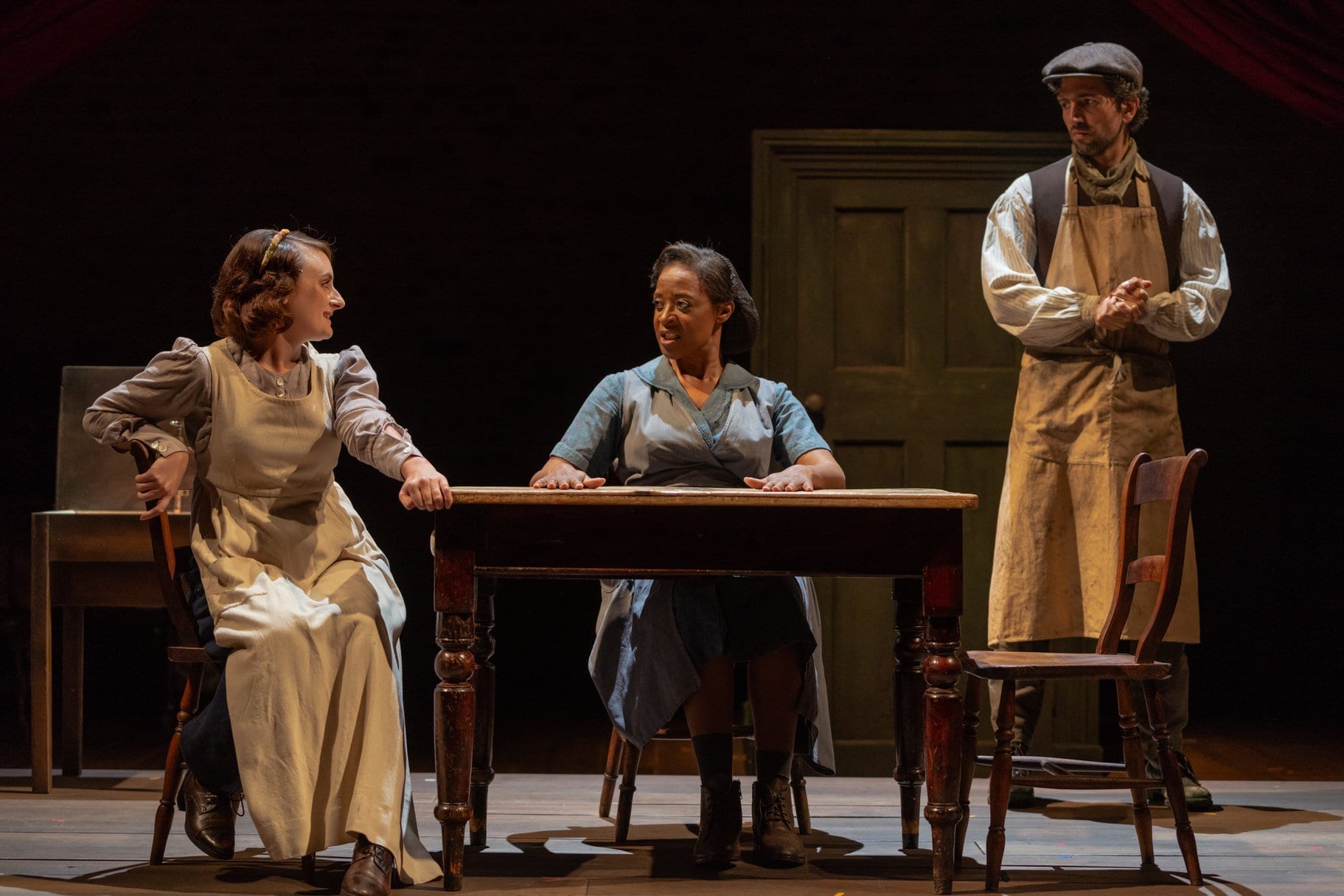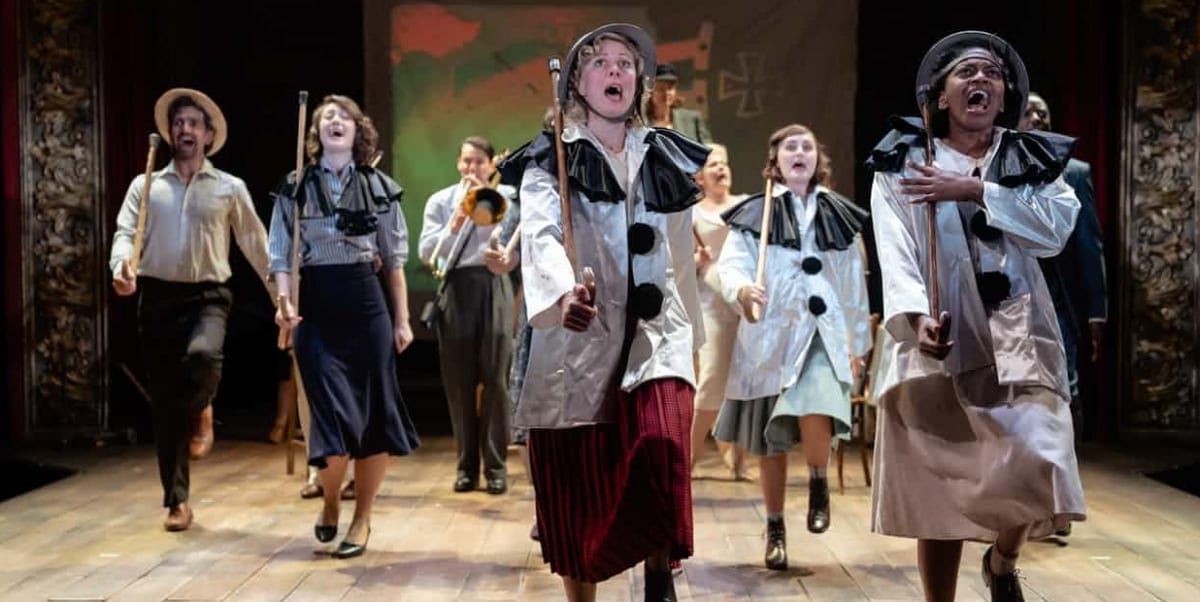One of the many exciting and interesting things about this new musical, commissioned by the RSC, is how cleverly it is the kind of show that theatrical innovator Joan Littlewood might have created if she wanted to tell this story.

It uses all the Brechtian devices that were called “alienation effects” throughout; it is a true work of ensemble acting and co-operation; it achieves maximum imaginative impact with minimalistic theatrical effects; the script feels spontaneous though it is clearly very cleverly crafted; and musically it has a kind of proto-Kurt Weill, sub-Berlin cabaret Marc Blitzstein approach that is simply the perfect compliment to the whole production. It also has a set that includes a facsimile of the proscenium arch at the Theatre Royal, Stratford East where Joan Littlewood and her company made such a lot of game-changing theatrical history. This is a superbly controlled and utterly captivating show, recreating a lot of the feeling and mood of some of those famous plays suggestively without knocking you over the head with any of it.
Sam Kenyon has written a fine, serviceable and extremely pleasant score that is the perfect carrier of his strong, witty lyrics. As in a Sondheim musical, you are always interested in what they are actually saying in song and every number carries the show along in terms of plot, narrative, character and themes. The production is a feast for the eye and the ear with its clever and pointed simplicity and syncopated routines. Each member of the cast has at the very least a good, music hall style voice and often something very much more. The choreography is lively, apt and at times very catchy, while the musicians, along with some of the actors at times, create a very special and apt sound world.
The device of having Clare Burt playing Joan Littlewood as the central narrator of her tale while several other actresses impersonate Joan at different stages of her life (from babyhood till she stops working after 1975) sounds tricky but works brilliantly. You are never in doubt who is playing Joan, or when an actor assumes another role. The story unfolds seamlessly and clearly, and every single member of the cast is working and delivering throughout.
The show works as a kind of bio-musical, as an historical tribute, and as a retelling of some very important history both of British theatre and politics. The characterisations are very clear and the “casting blind” element in terms of colour, race and sex adds to the point of the tale: that each one of us is an individual and must be accepted for who he or she really is. It is a show about finding, exploring and developing your own individual artistry and talent even when it goes against the grain of current fashions.

I wish I had room to praise every single cast member individually. Clare Burt herself is a standout in her non-stop role as narrator, observer and sometimes someone else, as remembered by Joan. She is appealing, witty and acerbic. You can see the toughness, the controlled warmth and the glaring sharp-mindedness. I have to commend each and every one of the other ‘Joans’
, and the sense that they collectively give you, as Murray Melvin once said, that she was in herself many different people and yet always Joan. Greg Barnett is extremely appealing as her youthful love and continuing theatrical partner, Jimmie Miller. Tam Williams is memorable in all his parts, and Solomon Israel makes an interesting character out of Gerry Raffles. Sophia Nomvete nearly stops the show when she comes on as Avis Bunnage; and Emily Johnstone adds a memorable twist to all her parts too, especially Barbara Windsor. For those of us old enough to remember The Quare Fellow or A Taste of Honey or Oh, What a Lovely War! there is a strong element of nostalgia. For those who are too young to know anything about Joan Littlewood, this will introduce them to an aspect of British theatrical and political history that should be celebrated and understood, and must not be forgotten.
This is an excellent show for many reasons and an important one. But above all, it is a really entertaining treat, an evening of theatrical magic and gusto, and that, above all, is what Joan Littlewood always was about.

